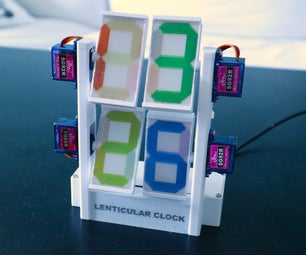Introduction: MAX7219 LED Matrix MQTT Using Esp8266
I was trying to connect my MAX7219 LED display to an MQTT server and receive a text from the MQTT subscription to display.
but I didn't get any suitable code on the internet, so I started building my own...
and the result comes quite well...
- you can display any text on led display
- you can adjust intensity of the display
- you can set the scroll speed
Supplies
- An esp8266 development board. (my case it's NODE MCU v1.0)
- MAX7219 LED Matrix Display.
Software needed:
- Arduino IDE.
- An MQTT server. (my case Mosquitto)
Library required:
- ESP8266WiFi.h
- MD_MAX72xx.h
- EspMQTTClient.h
Step 1: Setup Arduino IDE for Esp8266 Development
open preferences of Arduino then paste the below URL in Aditional Boards Manager URLs:
https://arduino.esp8266.com/stable/package_esp8266com_index.json
then Tools > Boards > Boards Manager and search for esp8266 and install it.
now your Arduino ide is ready for esp8266 development.
Step 2: Download External Libraries
now we need some libraries for MAX7219 and MQTT Client.
let's download and set up the libraries
navigate to Sketch > Include Library > Manage Libraries on Arduino IDE
and search for EspMQTTClient and click Install
NB: Install all dependent libraries, it's important
Again search for MD_MAX72xx and click Install
Step 3: Write Some Code Now
Now paste the below code
#include <ESP8266WiFi.h>
#include <MD_MAX72xx.h>
#include <SPI.h>
#include "EspMQTTClient.h"
#define MAX_DEVICES 4 // your device count
#define CLK_PIN D5 // or SCK
#define DATA_PIN D7 // or MOSI
#define CS_PIN D4 // or SS // you can set it to any pin
#define HARDWARE_TYPE MD_MAX72XX::PAROLA_HW // change according to your display type
MD_MAX72XX mx = MD_MAX72XX(HARDWARE_TYPE, CS_PIN, MAX_DEVICES);
const uint8_t MESG_SIZE = 255;
const uint8_t CHAR_SPACING = 1;
uint8_t SCROLL_DELAY = 75; // default scroll delay
uint8_t INTENSITY = 5; // default intensity
char curMessage[MESG_SIZE];
char newMessage[MESG_SIZE];
bool newMessageAvailable = false;
void scrollDataSink(uint8_t dev, MD_MAX72XX::transformType_t t, uint8_t col) {}
uint8_t scrollDataSource(uint8_t dev, MD_MAX72XX::transformType_t t)
{
static enum { S_IDLE, S_NEXT_CHAR, S_SHOW_CHAR, S_SHOW_SPACE } state = S_IDLE;
static char *p;
static uint16_t curLen, showLen;
static uint8_t cBuf[8];
uint8_t colData = 0;
switch (state)
{
case S_IDLE:
p = curMessage;
if (newMessageAvailable)
{
strcpy(curMessage, newMessage);
newMessageAvailable = false;
}
state = S_NEXT_CHAR;
break;
case S_NEXT_CHAR:
if (*p == '\0')
state = S_IDLE;
else
{
showLen = mx.getChar(*p++, sizeof(cBuf) / sizeof(cBuf[0]), cBuf);
curLen = 0;
state = S_SHOW_CHAR;
}
break;
case S_SHOW_CHAR:
colData = cBuf[curLen++];
if (curLen < showLen)
break;
showLen = (*p != '\0' ? CHAR_SPACING : (MAX_DEVICES*COL_SIZE)/2);
curLen = 0;
state = S_SHOW_SPACE;
case S_SHOW_SPACE:
curLen++;
if (curLen == showLen)
state = S_NEXT_CHAR;
break;
default:
state = S_IDLE;
}
return(colData);
}
EspMQTTClient client(
"YOUR_SSID",
"YOUR_WIFI_PASSWORD",
"YOUR_MQTT_SERVER", // MQTT Broker server ip
"YOUR_MQTT_USER", // Can be omitted if not needed
"YOUR_MQTT_PASSWORD", // Can be omitted if not needed
"MAX7219_DISPLAY", // Client name that uniquely identify your device
1883 // The MQTT port, default to 1883. this line can be omitted
);
void scrollText(void)
{
static uint32_t prevTime = 0;
// Is it time to scroll the text?
if (millis() - prevTime >= SCROLL_DELAY)
{
mx.transform(MD_MAX72XX::TSL); // scroll along - the callback will load all the data
prevTime = millis(); // starting point for next time
}
}
void setup()
{
Serial.begin(115200);
mx.begin();
mx.control(MD_MAX72XX::INTENSITY, INTENSITY);
mx.setShiftDataInCallback(scrollDataSource);
mx.setShiftDataOutCallback(scrollDataSink);
curMessage[0] = newMessage[0] = '\0';
sprintf(curMessage, "Smart Display");
}
void onConnectionEstablished()
{
// MQTT subscription topic for display text
client.subscribe("leddisplay/text", [](const String & payload) {
sprintf(curMessage, payload.c_str());
});
<p>// MQTT subscription topic for display intensity controll</p> client.subscribe("leddisplay/intensity", [](const String & payload) {
mx.control(MD_MAX72XX::INTENSITY, payload.toInt());
});
// MQTT subscription topic for display scroll speed controll
client.subscribe("leddisplay/scroll", [](const String & payload) {
SCROLL_DELAY = payload.toInt();
});
}
void loop()
{
client.loop();
scrollText();
}
For detail information, refer to this repository
Step 4: Circuit Diagram
connect MAX7219 display with NODE MCU
Step 5: Upload Code to Esp8266
now choose your correct board type and serial port then hit upload.
Step 6: Test Everything
if everything goes correct then your esp8266 will be connected to your MQTT server.
now, if anything will be published on leddisplay/text topic that will be displayed.
{
topic: "leddisplay/text",
payload: "your message here"
}
if you want to set the intensity of display
{
topic: "leddisplay/intensity",
payload: "2" // max is 15 and min 0
}
if you want to set the scroll speed of display
{
topic: "leddisplay/scroll",
payload: "100" // max is 255 and min 0
}
Happy coding








